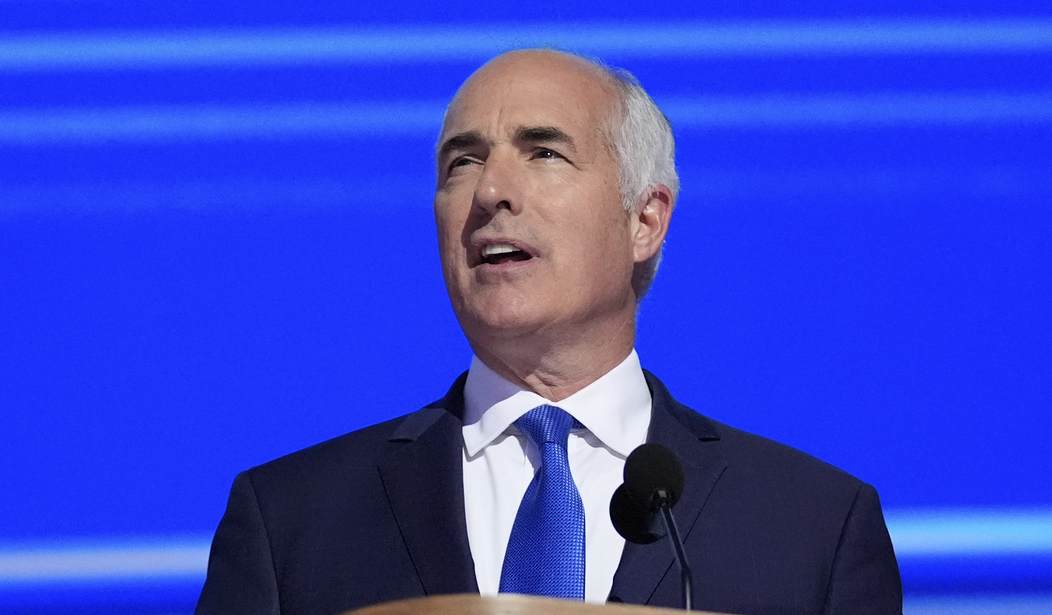Pennsylvania Sen. Bob Casey called for an end to the Senate's filibuster rule during his debate with Republican challenger Dave McCormick on Tuesday night, saying the rule should be scrapped so that gun control measures can pass out of the chamber with just 51 votes.
Casey, who's running for a fourth term in the Senate, narrowly leads McCormick in the RCP aggregate of polls, and the Pennsylvania Senate race could determine which party controls the Senate for the next two years. While Casey avoided talk of an "assault weapon" ban during Tuesday night's debate in favor of vague talk of "common sense measures" that he said will have "no impact on Second Amendment rights" or "law-abiding law owners who need a gun for self-protection or want a gun to hunt," if the filibuster disappears you can rest assured that one of the first bills Democrats would ram through the Senate would be a ban on modern sporting rifles.
On the filibuster, which requires 60 out of 100 senators to advance legislation in the Senate, McCormick said he supports it because it prevents extreme bills from passing. Casey said it is preventing the passage of popular legislation, including expanding background checks on gun purchases.
“We can do so much to move the country forward, but he wants to hide behind that rule,” Casey said.
McCormick, meanwhile, pushed back on stronger gun regulations, saying most gun violence crimes are committed with illegal guns and that restricting gun ownership won't solve it.
McCormick correctly pointed out that Philadelphia has seen a significant reduction in homicides this year, without any new gun control laws put in place at either the state or federal level. As of October 6, Philly police have recorded 187 homicides; a 43% decline from the 327 homicides at the same time last year.
While homicides are trending down in most U.S. cities, two criminal justice professors say there are a couple of additional factors at play in Philadelphia, including a return to normalcy in policing and the courts after the COVID shutdowns in 2020 and the decision by then-police chief Danielle Outlaw to curb arrests for many low-level offenses. Carla Lewandowski and John Shjarback of Rowan University also credit new policing strategies for the steep drop in murders.
Mayor Cherelle Parker, elected on a law-and-order platform, declared a public safety emergency on her first day in office.
She also appointed Kevin Bethel as police commissioner in charge of the more than 6,000-member force. Bethel, second in command under former Commissioner Charles Ramsey, quickly released a 100-day plan that focused on crime reduction in high-crime districts, shutting down open-air drug markets in Kensington and reinforcing federal partnerships to tackle violent crime.
Philadelphia has also adopted new policing strategies and technologies.
In early 2022, before Parker and Bethel’s tenure, the Philadelphia Police Department under former Commissioner Danielle Outlaw designated a new unit to investigate nonfatal shootings. In 2021, only 17% of nonfatal shootings led to arrests, a failure that can fuel retaliatory violence, legal cynicism – which refers to a drop in trust of the legal system – and communities resorting to self-policing.
While it’s not yet clear what effect the new unit has had in Philadelphia, research shows such units that prioritize resources to solving nonfatal shootings in places such as Boston and Denver have reduced gun violence.
More recently, the city began deploying mobile surge teams on weekends to flood high-crime areas with officers to deter potential criminal activity.
Meanwhile, Temple University attributes the reduction in crime within its patrol areas to the implementation of safety measures, including new equipment for officers such as firearms and radios, upgraded security cameras and advanced technology such as license plate readers, which help identify stolen vehicles or those linked to criminal behavior.
Unlike universal background checks, waiting periods, and gun bans, these strategies truly have no impact on the Second Amendment or lawful gun owners. So why isn't Casey touting those strategies instead of demanding the filibuster disappear?
Well, because he's a committed anti-2A politician who backs caps on magazine capacity, "red flag" laws, and yes, a ban on what he calls "military-style assault weapons", all of which he describes as "commonsense measures." Casey doesn't want to nuke the filibuster so that Democrats can expand background checks. He wants the Senate to ban the most commonly owned rifles in the country. Hopefully, Pennsylvania voters see through his smokescreen, but McCormick would be smart to remind them of what Casey's call to scrap the filibuster would mean for their fundamental right to keep and bear arms in the final weeks of the campaign.









Join the conversation as a VIP Member